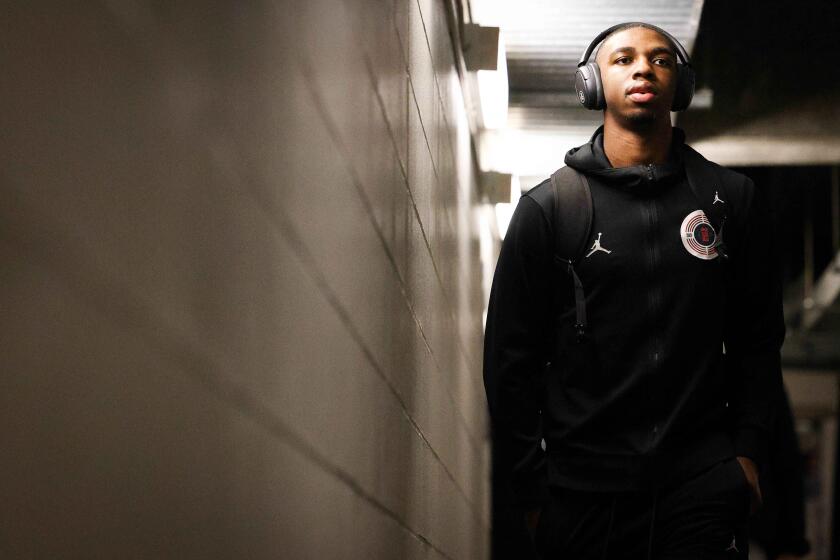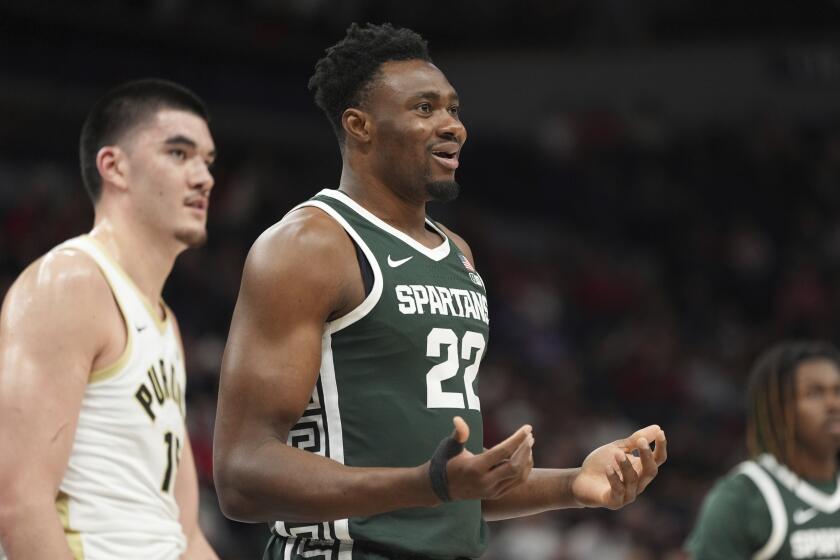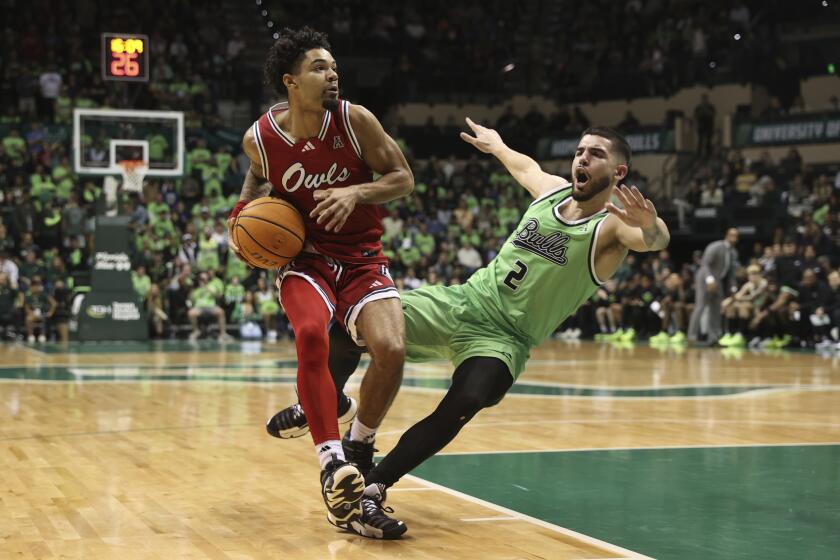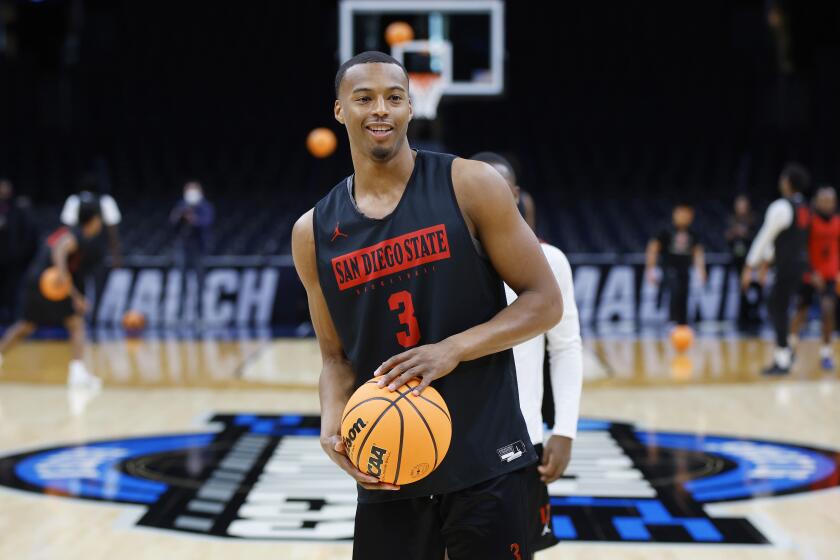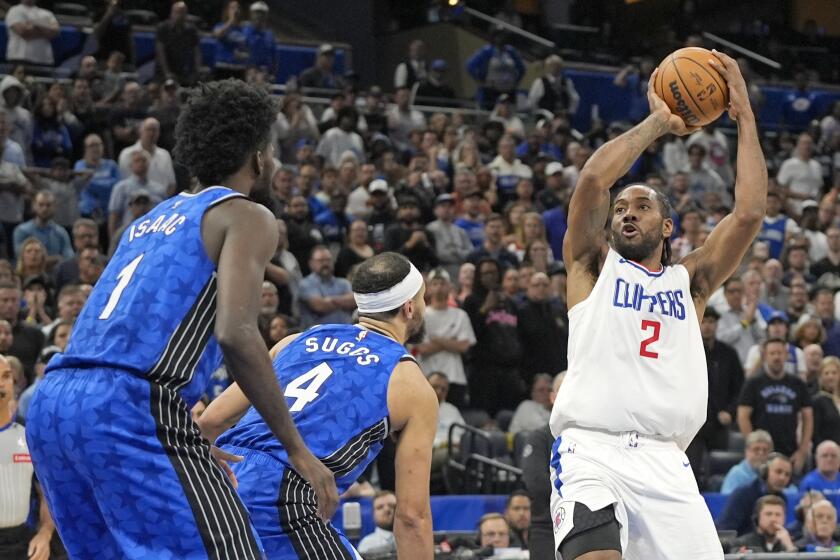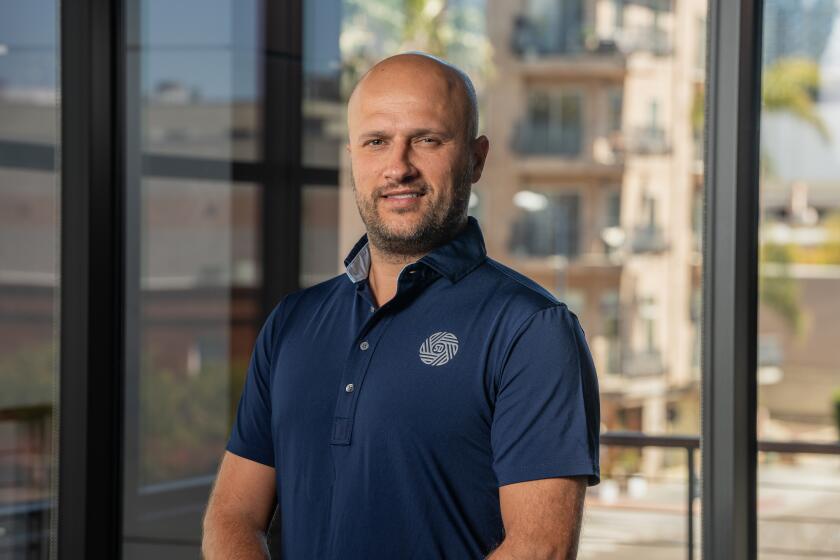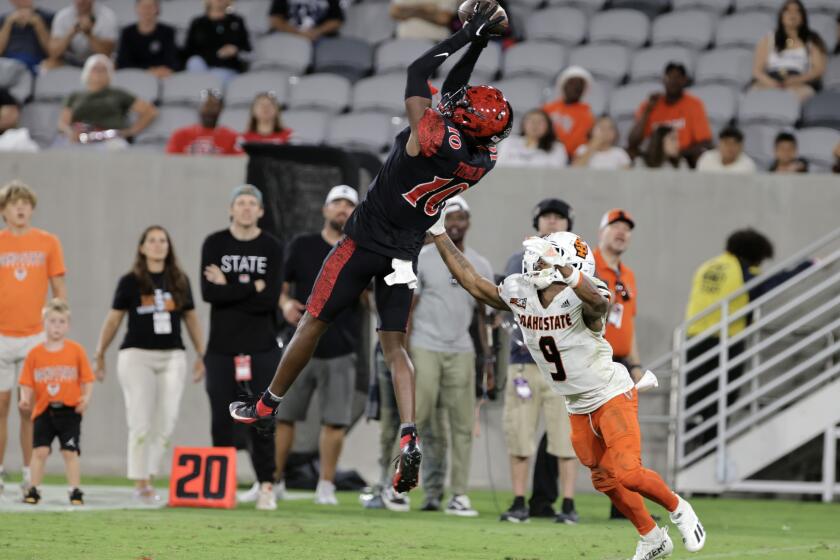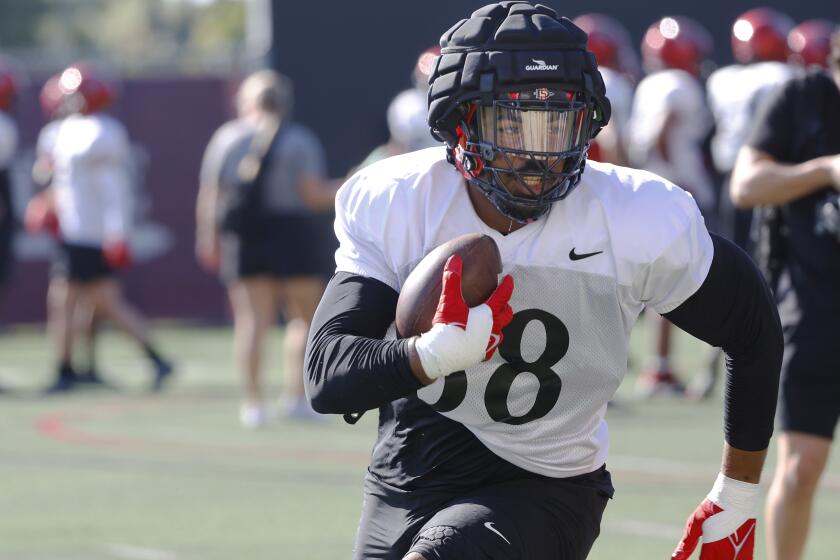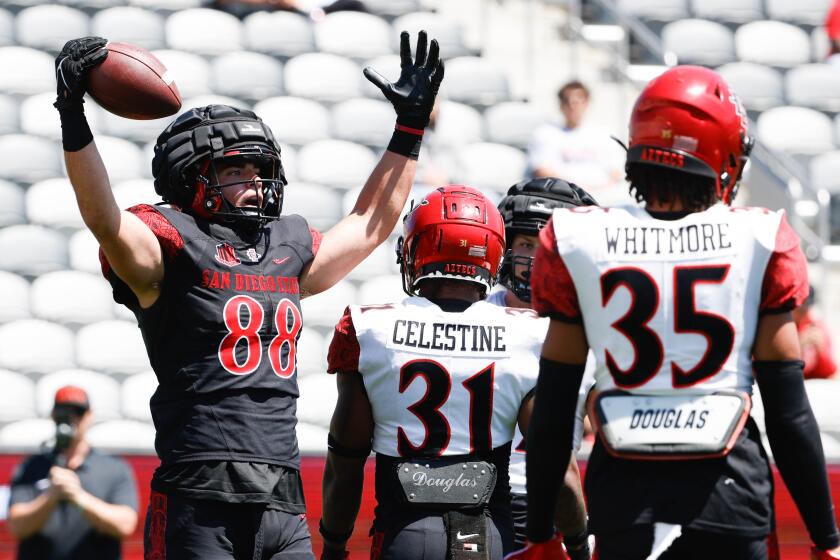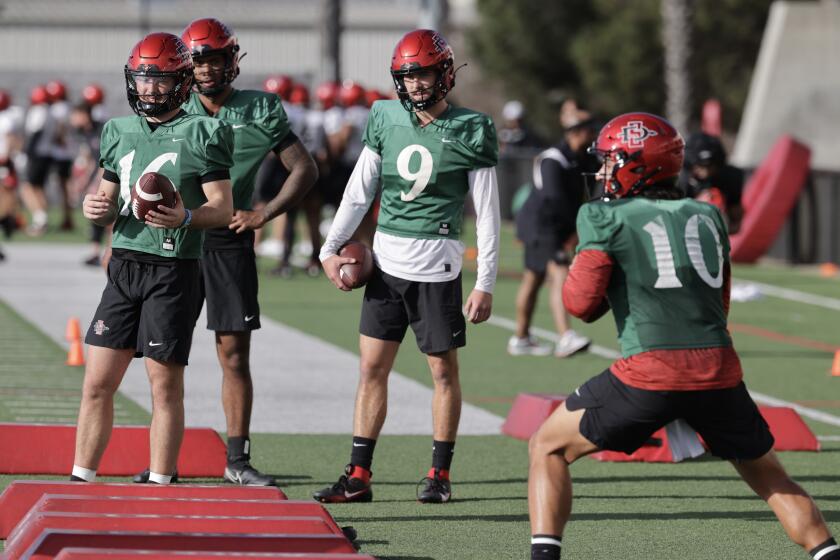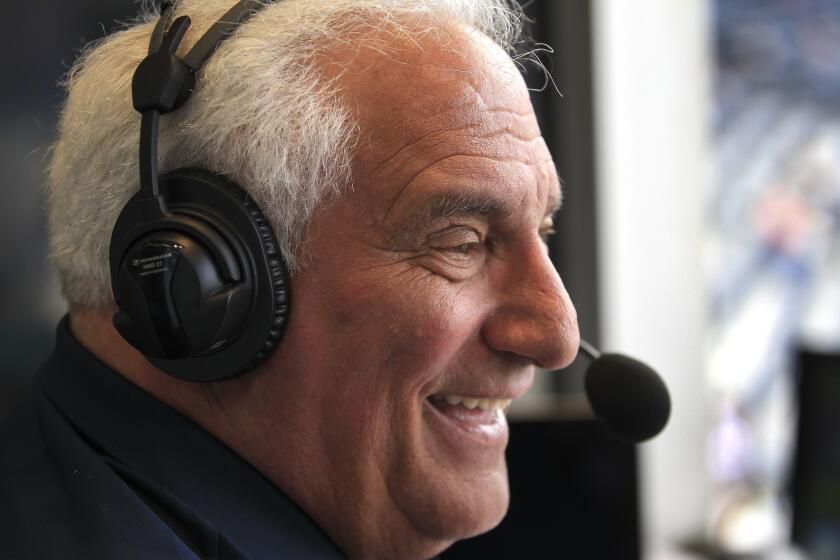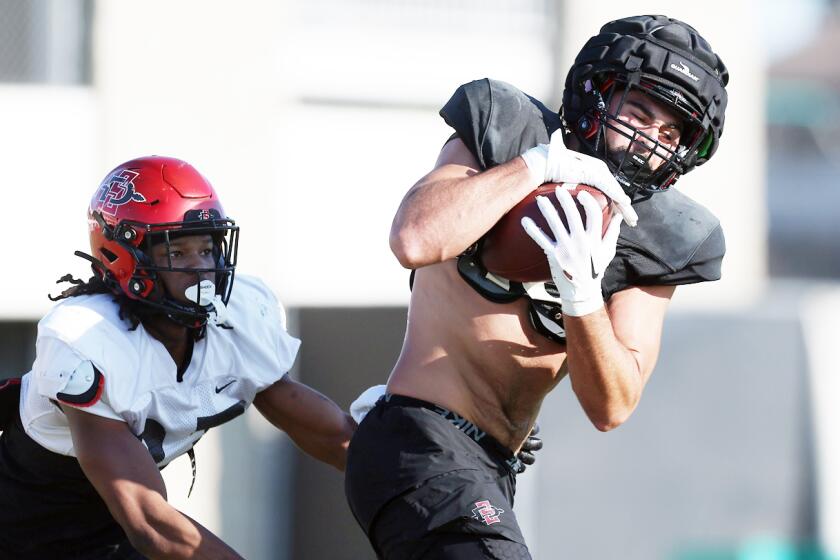MESA Foundation, the NIL collective for SDSU basketball, takes a different approach
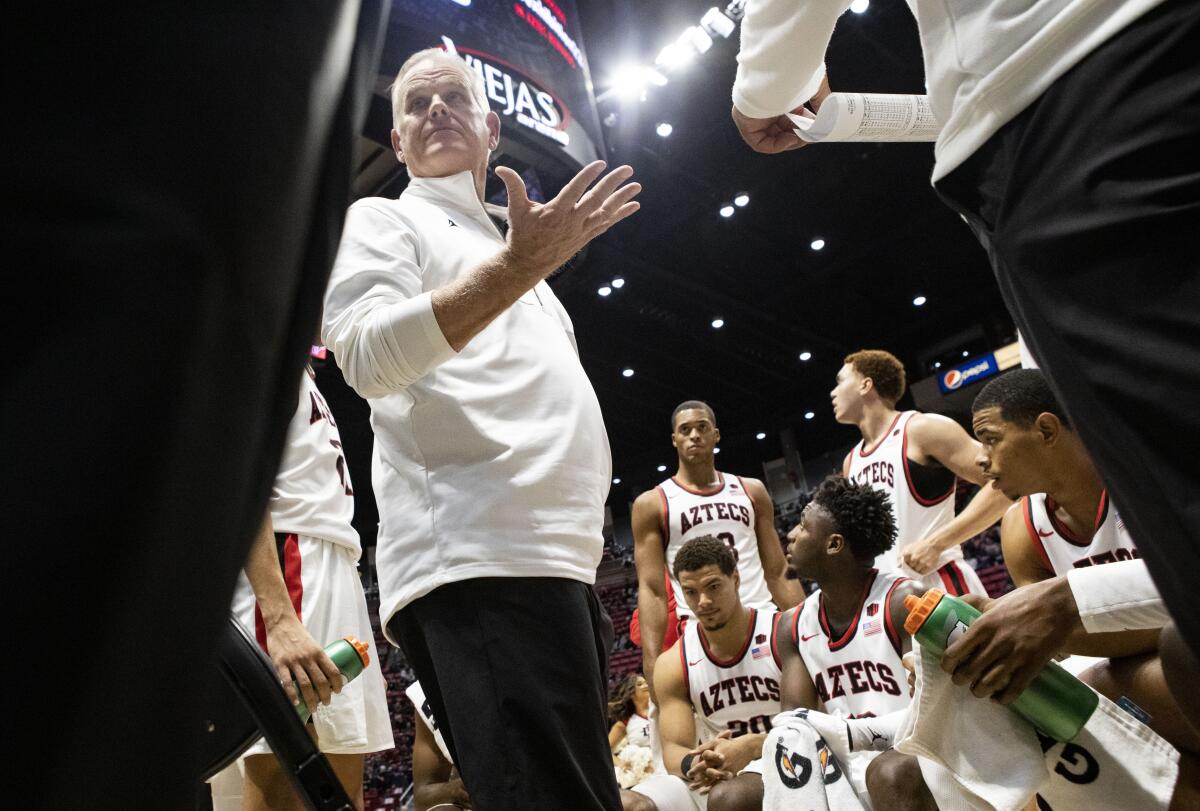
The MESA Foundation is different from many collectives at other schools, paying players equally and requiring participation at community service events
Jeff Smith admits it. He’s a traditionalist.
“I didn’t necessarily like it,” Smith says of name, image and likeness becoming a de facto ATM for college athletes. “It seemed like it changed the tradition and structure of amateur athletics.”
But Smith, San Diego State class of ‘93, also understands how it affects his alma mater.
“I’m an Aztec, I love the school, and I love the basketball program,” Smith says. “Other than Title IX, I don’t know that there’s been something that has such an immediate impact on college sports and the way a program is run like the introduction of NIL. Then you couple that with the transfer portal. There are certain things you can and can’t control.”
One thing he could control is how NIL funds are disseminated to athletes, and under what terms. So he and several other like-minded SDSU basketball supporters — Peter Elia, Tommy Morris, Tom Newton — formed the school’s first non-profit, tax-exempt NIL collective, called the MESA Foundation. The name works on two levels: the university’s location on Montezuma Mesa and as an acronym for “Mentoring and Empowering Student-Athletes.”
It began with 11 scholarship players on the men’s basketball team (Nathan Mensah, as a foreign athlete, is precluded from certain NIL activities by his student visa) and recently has expanded to include the women’s basketball team at a lower level. The budget is $350,000 for the first year, with the 11 men’s players receiving about $2,000 each per month through June if they’re seniors and through August if they’re underclassmen.
But they’re not just handed the money. There is a community service component that comes with it, with a specific number of events they must attend accompanied by social media posts promoting charitable organizations.
They started in October with the ALS Walk at Mission Bay, and the elevated profile from their participation helped raise a record $439,000. There’s a San Diego Food Bank event on Dec. 27, a Boys and Girls Club event in February, a clinic with multiple Native American tribes planned for June.
The MESA board also includes Mike Lalich, Jason Tetley, Jeff Goodall Jr. and former SDSU point guard DJ Gay. It is completely donor driven and recently received tax-exempt, non-profit status.
“I feel good about them in their intent,” says Tim Lanski, SDSU’s senior associate athletic director for compliance. “Obviously, they want to support San Diego State and the athletes. But the way they’re doing it, how they’re trying to use the platforms of these students and bringing awareness to these not-for-profits, I love that idea. A lot of collectives where you kind of get nervous about is you have a one-time deal to promote a company and you’re funneling five, six, seven figures to them.
“That’s not the intent of what NIL is. That’s not why we went down this road. The fact that there’s goodwill with this collective makes me feel better.”
Another unique twist: All 11 players receive the same amount, senior or freshman, starter or backup, all-American or all-bench.
It fits the ethos of Brian Dutcher’s program, which has an overt team-first culture and actively recruits players who fit it.
“I don’t know how many of the coaches here embraced NIL initially, because of that fear of one or two players making more on the team and how do coaches manage that locker room,” Lanski says. “I think this collective is more aware of our team dynamics and less worried about lifting one player.”
That Lanski can speak about the MESA Foundation reflects the NCAA’s shifting approach to NIL collectives, which initially were supposed to operate without acknowledgment of athletic departments.
Now they can endorse collectives, and to that end SDSU Athletic Director John David Wicker sent a letter to top donors last week promoting the MESA Foundation and the more football-centric Aztec Link. Dutcher and assistant coach Dave Velasquez both have video testimonials on the MESA Foundation website (mesafoundationsd.org), as do multiple players
One thing MESA won’t do, Smith insists, is meddle in recruiting, something collectives across the country have been accused of doing to varying degrees.
“The first call with them is very straightforward,” Lanski says. “I tell them, ‘We’re not the school looking to use this for recruiting. We want to stay out of that space. We don’t need your help in that space. That’s just going to get us in trouble.’ And quite frankly, let the coaches do their job. They’re good at it.”
Says Smith: “I’ve known the coaches for a long time and consider many of them good friends. I trust them. We want to support them any way we can. When we were considering board members, we were very careful to pick people who are similarly minded. MESA is only about creating opportunities for existing Aztecs student-athletes.”
Dutcher is just happy players are no longer sleeping on the couch or even the floor the night before games when their parents come to town, with players giving their parents their beds. The additional monthly income helps cover a plane ticket and hotel.
“I’ve been here four years,” forward Aguek Arop said in a video posted on the MESA Foundation website, “and (my parents) have only been to one game with the cost of flights and hotels. … I’ll be able to get them out for a few more games and they’ll be able to watch me for my last season. I know they’re super proud and they enjoy watching the games.”
Added guard Lamont Butler: “The MESA Foundation has helped me be more comfortable. I don’t have to worry about rent expenses as much or car expenses. I don’t have to worry about that, and I can just focus on hoops.”
Most players’ families attended the Maui Invitational last month. Smith noticed, sitting behind them at the Lahaina Civic Center.
“It’s been fulfilling,” Smith says. “The players are very grateful. Watching what this is doing for them, knowing the additional levels of stress that finances add to some families, this is changing that in a meaningful way. We want to be a conduit for them to the community and a way to check a very, very important box that’s been introduced to college sports.”
Sign up for U-T Sports daily newsletter
The latest Padres, Chargers and Aztecs headlines along with the other top San Diego sports stories every morning.
You may occasionally receive promotional content from the San Diego Union-Tribune.

